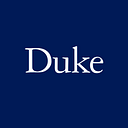In Australia, Discovering a Different Point of View

By Kyle Beardsley
When my family and I were first asked “How are you going?” — which was almost immediately upon our arrival into Australia — we did not quite know how to respond or what to make of it. After a few more friendly greetings of this sort, we finally figured out that it essentially means the same as “How are you doing?” in the US. But the ethos is not exactly the same, and I think the difference between a concern for how one is “going” versus a concern for how one is “doing” says something about the different cultures.
I think there is also a deeper lesson here to be learned by Americans from Australians regarding how to make the most of, say, a Fulbright scholarship or academic life in general. Let me explain.
The American emphasis on “doing” coincides with longer work hours than much of the rest of the world and a general focus on personal achievement. While there are many positive things that can come from such a culture — especially when the achievements (the “doings”) are oriented toward social goods such as finding solutions to society’s biggest problems — there are also many negative things including unhealthy stress and relational friction. In contrast, the Australian emphasis on “going” coincides with professional cultures that are more likely to prioritize a work-life balance, in which there is opportunity to enjoy the journey and not just the achievement of the goals.
As one particular example, it is striking that faculty at most US universities do not have to report time off to their departments. Our professional lives so easily spill over into our personal lives because there are few clear boundaries between when we are working and when we are not. My understanding of universities in Australia, however, is that faculty do have time-off allocations that they are expected to take. Aside from this one example, I experienced many other informal norms during my time at Australian National University which point to a higher value for the quality of the journey (the “going”) over the prestige of the achievement (the “doing”).
As I near the completion of my Fulbright scholarship, I recommend that future scholars, especially those traveling to Australia, should consider the opportunity as a “going,” a journey with destination unknown. The scholarship experience is not something that is simply to be “done.” I gained the most from my time when I allowed myself to be curious of the excellent work being conducted around me. I am glad that so many new friends and colleagues were willing to share a coffee or a meal with me so that we could discuss both research topics and broader life topics. I come away from my Fulbright scholarship with a draft book chapter that I did not originally intend to write; I let it be part of the journey as my fellow travelers shared their ideas and I came to see how my research related to their work.
When we arrived in Australia, one of the first things we did was to see a play at the Sydney Opera House. It was a cute adaptation of Alison Lester’s “Are We There Yet?” which tells the story of a young family’s journey around Australia in a camper trailer. The feeling that the play and the book evoke is one of discovery — both of the country and of the relationships in the family. Too often we academics ask “Are we there yet?” as we try to “do” the next degree, article, book, grant, etc. Of course we’ll never get to a “there” and we’re likely to miss the opportunities to truly explore new ideas and to develop meaningful collegial relationships unless we slow down and appreciate the journey.
After my time in Australia, I’m glad that I’ll have some friends who will occasionally check in, reminding me to enjoy the journey when they ask me “How are you going?”
Kyle Beardsley is a political science professor at Duke University and served as a Fulbright Distinguished Chair in the Social Sciences at The Australian National University from January through June 2023.
